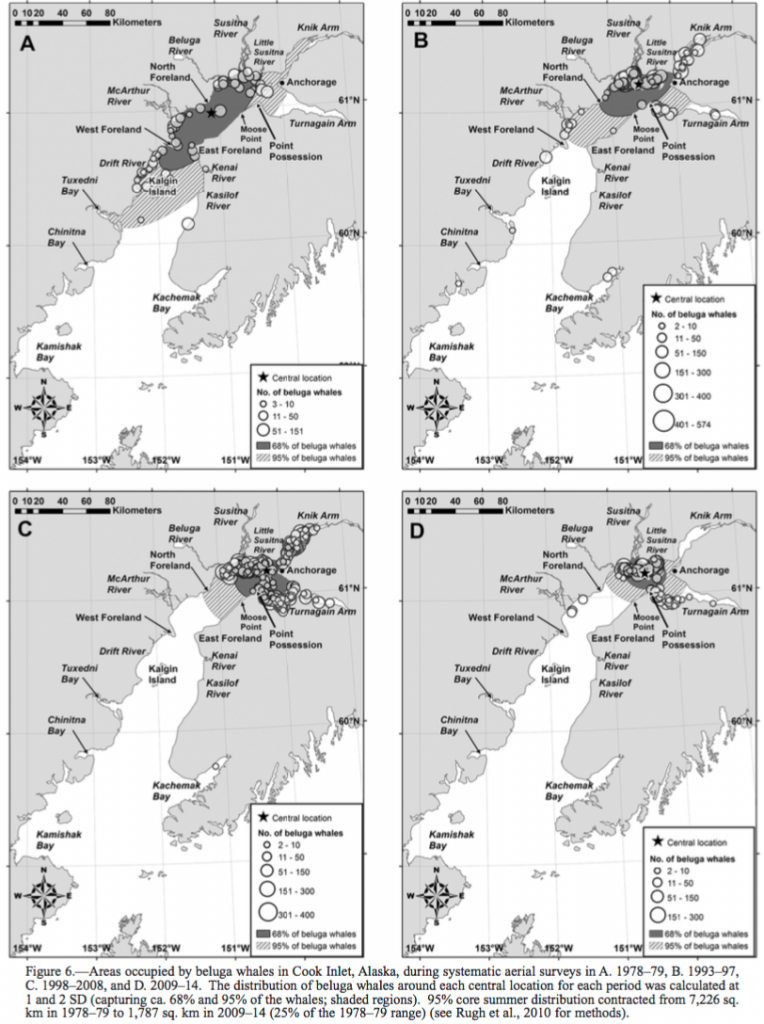Two troubling reports have surfaced regarding beluga whale populations in waters that have become increasingly industrialized and noisy in recent years. In Quebec’s Saguenay River, the major river system draining into the St. Lawrence, recent years have seen a sharp uptick in dead beluga babies and pregnant mothers; in 2015, these sensitive individuals were half of all known mortalities. Increased noise is the primary culprit; according to the CBC, “The researchers are working from the theory that beluga calves have soft calls, which may be drowned out by the noise from ships, ferries and boats in the Saguenay and St. Lawrence rivers.”
In Alaska’s Cook Inlet, beluga range has shrunk dramatically over the past couple of decades (see map below), and accelerated in recent years, as ongoing port construction and oil and gas development has introduced increasing levels of noise into these key waters. It’s unclear whether the smaller range is simply a reflection of a reduced local population, meaning they don’t need to range so far to avoid competing with each other for food, or if they are responding to the increasing chronic noise. See previous AEInews coverage of the Cook Inlet belugas here. Recent NMFS research papers on the changes can be accessed at this link, and this in-depth article from a couple years back is a good overview of the current development and research activities.


August 2nd, 2016 at 8:27 pm
My mapping is showing that many of the dieing whales, dolphins and manatee are probably getting shocked by the 500-1500 amps @25V-100V DC pumped into the seawater around the hulls of vessels and oil platforms and piping for ICCP cathodic corrosion protection. Way too much juice pumped into conductive seawater to be safe. Divers shut them off before swimming close to them so they do not get shocked.
August 3rd, 2016 at 1:19 pm
Not yet quite buying this theory (seeing rough correlations, rather than causation, at a first glance), but it’s fairly well laid out on his site, and he’s a Mainer, so hey, might as well approve the comment and let others see it. Go for it, Stewart!